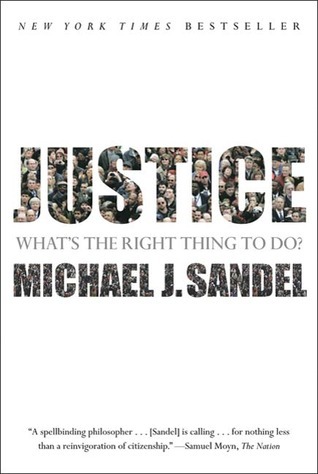More on this book
Community
Kindle Notes & Highlights
Read between
November 16 - December 6, 2020
We sometimes think of moral reasoning as a way of persuading other people. But it is also a way of sorting out our own moral convictions, of figuring out what we believe and why.
Feeling the force of that confusion, and the pressure to sort it out, is the impulse to philosophy.
If you believe in universal human rights, you are probably not a utilitarian. If all human beings are worthy of respect, regardless of who they are or where they live, then it’s wrong to treat them as mere instruments of the collective happiness.
Debates about justice and rights are often, unavoidably, debates about the purpose of social institutions, the goods they allocate, and the virtues they honor and reward.
The attempt to detach arguments about justice and rights from arguments about the good life is mistaken for two reasons: First, it is not always possible to decide questions of justice and rights without resolving substantive moral questions; and second, even where it’s possible, it may not be desirable.
A just society can’t be achieved simply by maximizing utility or by securing freedom of choice. To achieve a just society we have to reason together about the meaning of the good life, and to create a public culture hospitable to the disagreements that will inevitably arise.
Justice is not only about the right way to distribute things. It is also about the right way to value things.


